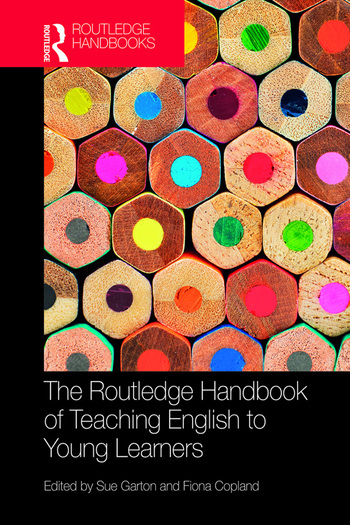- Contributor
- Editors
- Publisher
- Year
- ISBN
- Language
- Janice Bland
- Sue Garton and Fiona Copland
- Routledge
- 2018
- 9781138643772
- English
The Routledge Handbook of Teaching English to Young Learners celebrates the ‘coming of age’ for the field of research in primary-level English Language Teaching. With 32 chapters written by international scholars from a wide geographical area including East Africa, Mexico, the South Pacific, Japan, France, the USA and the UK, this volume draws on areas such as second language acquisition, discourse analysis, pedagogy and technology to provide:
- An overview of the current state of the field, identifying key areas of TEYL.
- Chapters on a broad range of subjects from methodology to teaching in difficult circumstances and from Content and Language Integrated Learning (CLIL) to gaming.
- Suggestions of ways forward, with the aim of shaping the future research agenda of TEYL in multiple international contexts.
- Background research and practical advice for students, teachers and researchers.
With extensive guidance on further reading throughout, The Routledge Handbook of Teaching English to Young Learners is essential reading for those studying and researching in this area.
Both language and content are involved in all holistic, content-based approaches to language education with young learners. This chapter argues that waiting until children are old enough to study adult literature creates a delay in their affective, cognitive and literacy development that may be difficult to reverse. The formats and characteristics of children’s literature are presented, including multimodal texts such as picture books, graphic novels and story apps that support multisensory learning of integrated language and content. Children’s literature can support learners in tolerance of ambiguity, in the development of rich lexical representations of language, in implicit learning of formulaic sequences and in recognizing language patterning, for example, through poetry and oral storytelling. Learning through literature can also stimulate and promote creative writing in English. Thus literature in English language education offers a valuable study in multiple ways – for the acquisition of intercultural understanding, literary literacy and critical literacy, aesthetic pleasure, visual literacy, windows on other worlds and, an important skill in an increasingly rapid world, deep reading.
- Reviews


